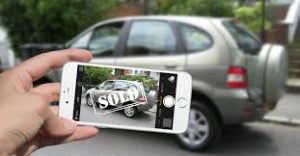The loss of a loved one is stressful, emotionally draining, and can be a traumatic experience. And, if you have been named as an executor in a will, being in charge of administering the estate can be stressful, especially if it means selling the deceased’s motor vehicles.
Even though the executor must ensure that the deceased’s assets and gifts are distributed legitimately, properties may need to be retitled or sold. It’s a terrifying thought. We’ve reviewed some of the most critical processes in selling someone’s home and answered some of the most frequently asked questions.
Contact Premier Car Removal at 406 996-661/08 6252-8500 for more information on selling a deceased estate vehicle.
Identifying The Vehicle’s Beneficiary
The executor of the Will is in charge of determining who will receive the car. If the vehicle is held in joint ownership and the second owner survives, it will be transferred to them. The executor will have to work with the relevant transport authorities to change the car’s ownership into their name.
If the deceased was the only vehicle owner, the executor must review the Will to see if the vehicle was mentioned and who would be the beneficiary. For example, if a beneficiary is named, the executor must transfer the title to the beneficiary through the right transportation body.
What if There is No One to Benefit?
If the dead did not include their vehicle in their assets, the executor of the Will can Sell The Vehicle and distribute the proceeds to all beneficiaries or distribute the car to one of the beneficiaries.
To begin the procedure, contact transportation authorities. Before transferring or selling the automobile, contact the appropriate authorities first. The specifics may alter depending on your state, but the overall process is the same.
- Inform the transportation authority of the passing. To verify the death, the rules will need either the death certificate, an interim death certificate, or a letter from the court. Do not contact the transportation authorities until you have one of the documents listed above.
- Provide proof that you are the executor of the Will and estate to the transportation authority. You must offer evidence that you are the executor and authorised representative of the estate. A relevant section of the Will, a Grant of Probate, or Letters of Administration could be used as proof.
- Submit the necessary documents, licences, and registration to transfer ownership. This could include cancelling the deceased’s driver’s licence, transferring ownership of the car to a beneficiary, cancelling registration, and other actions.
What Happens to the Car if the Deceased Did Not Leave a Will?
There would be minor modifications in the process if the dead died without a Will, also known as dying intestate. Your entire estate will be distributed to your next of kin, depending on your circumstances. If you are single, your inheritance will be distributed to your surviving parents, as per the hierarchy of your next of kin. It will be passed on to the next person if they are no longer living.
The following is the hierarchy:
- Your partner and/or children.
- If you are single, your children are entitled to equal support
- Parents who have survived.
- Any surviving siblings are allowed to divide the estate equally.
- Grandparents who have survived.
- Uncles and aunts are relatives.
- Cousins.
The estate administrator must carry out the estate’s instructions under intestacy statutes. They can transfer the vehicle to the designated beneficiary or sell it and receive the proceeds.
Selling a Deceased Person’s Property Without a Will
If someone dies without a Will or a named executor, the estate must first go through probate so that someone can be designated to distribute the assets under intestacy statutes.
As a result, a grant of Letters of Administration from the court is required.
Once this letter is secured and an executor is named, the deceased’s assets can be dispersed in line with intestacy laws.
Finally, What Happens to a Deceased Person’s Vehicle?
To ensure your Will and estate are simple to distribute, it’s preferable to be clear when naming beneficiaries and assets, e.g. I leave John the automobile in my name.
You do not need to indicate the brand and model of the car because doing so may result in excessive changes to the Will if you upgrade or change cars.
Never is too late to create a will. Having a legally binding Will is one of the most essential things you can do to ensure the care of your loved ones in the case of your passing.
Using a Will to Sell Deceased Property
The procedure differs slightly when a Will has been properly executed and is ready for review. The Will must be probated once more. However, under these cases, all that is required is that the Will be found legitimate and that the appointed executor begins correctly distributing the assets. This is referred to as receiving a Grant to Probate. The support can now be allocated from this point forwards.
However, a problem may develop if an item must be sold before its value can be divided among individuals who have been identified. This scenario frequently occurs when the deceased person’s family house must be sold. Do you need assistance applying for a Grant of Probate?
Speak with a Premier Car Removal Perth professional at 406 996-661/ 08 6252-8500.







